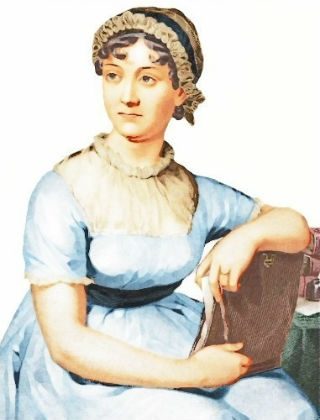200 years of Jane Austen.
Two hundred years ago, British novelist Jane Austen published her third romantic fiction novel, Mansfield Park. Like her previous books, it was a witty but scathing fictional expose of Regency life as lived by the noble and not so noble, rich and infamous. It followed the fates of an aristocratic family who take in a poor relation, and the antics of this family when a brother and sister of similar age and social status enter the district, apparently intend on finding someone to corrupt.
While seen by many as simply old fashioned romances, Jane Austen's stories were actually social comment at its best, holding a mirror up to her contemporaries to show them their sins and foibles. In a world where rules of behaviour confined women to very restricted roles, even when they were high-born and wealthy, Austen defied convention by daring to make a living in a profession populated almost exclusively by men.
Jane Austen came from the gentry, although her family was not overly wealthy; her father being a clergyman with a modest living. Jane was one of 8 children, six of whom were boys (and all of whom lived to adulthood). As such, she had few options in life other than to marry a gentleman of equal or better social status to herself. She could not expect to be able to stay single and live comfortably on her share of the family fortune, even were she inclined to do so. What little money there was would generally be expected to be settled on the male heirs to buy them into gentlemanly careers.
While seen as a trail-blazer of the romantic fiction genre, Jane Austen was following in a tradition, albeit a little known one, of female authors of the late 17th and early 18th century, like novelist and play-write Aphra Behn and the ‘fair triumvirate of wit’.
There is no suggestion that Austen would have understood same-sex attraction, yet parallels can be drawn between the career Jane Austen forged, and the current Lesbian Fiction genre. Women writers like Austen, the Bronte sisters, and Virginia Wolfe opened a path of subversion that made it possible for later generations of female authors to dare to be different.
The trend Austen set in 1814, has led directly to today's choices. Women, be they lesbian, non-lesbian, or somewhere in between, benefit from this legacy. A lesbian fiction writer's ability to find ‘a room of one's own’, write in it, publish what they write, and collect royalties in their own name, stems directly from the work of those that have gone before. Their struggle for acceptance mimics our own community's struggle, and their successes elevate us all, two hundred years later.
Austen could have no idea what would be spawned as a result of her efforts, but it would be nice to think that somehow, if she knew, she would be proud. At the very least, she would be bound to find it excessively diverting.


